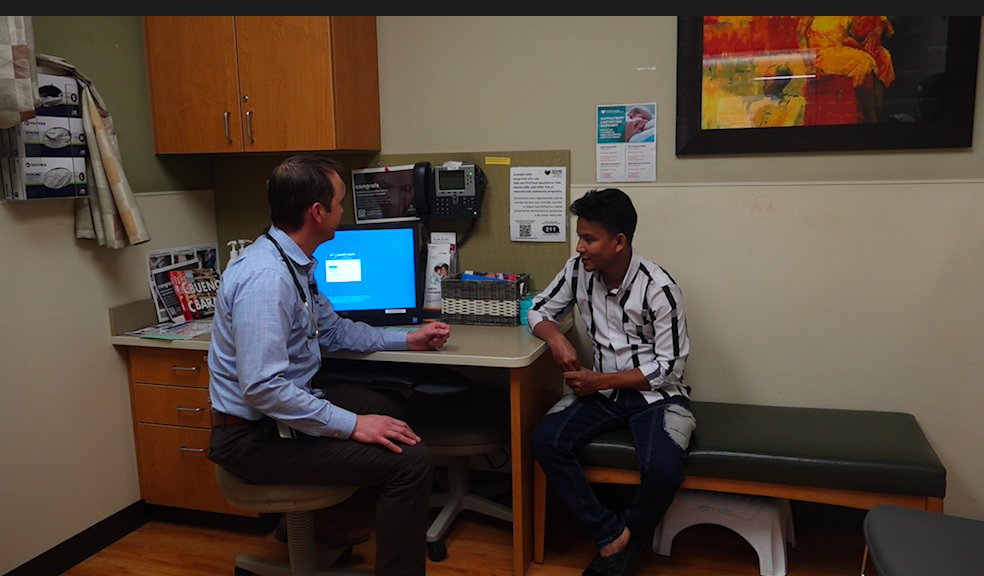Physician says AI transforms patient care, reduces burnout in hospitals

Artificial intelligence (AI) is revolutionizing the way doctors interact with patients, with thousands of physicians across the country now using ambient listening technology during appointments. This innovative tool listens to conversations between doctors and patients, transcribes them in real-time, and compiles detailed clinical notes without disrupting the flow of the visit.
Dr. Daniel Kortsch, associate chief of artificial intelligence and digital health at Denver Health, shared how ambient listening technology has transformed their practice since its implementation in fall 2024. The physicians at Denver Health utilize an AI tool called Nabla, which seamlessly transcribes conversations with patients with just one click. This tool supports multiple languages and generates a summary that can be easily added to the patient’s medical record post-visit.
The use of ambient listening technology comes at a crucial time as the U.S. is facing a projected shortage of physicians, leading to increased workloads and provider burnout. By implementing AI tools like Nabla, physicians have reported working less at home and experiencing improved work-life balance.
While some patients may be skeptical of AI in healthcare, tech companies emphasize that doctors remain in control of the process, ensuring the accuracy and appropriateness of the information generated by the AI devices. Kenneth Harper, head of Dragon Copilot at Microsoft, highlighted the importance of maintaining physician oversight in the use of AI technology.
Dragon Copilot, Microsoft’s ambient listening technology, is currently being utilized by 600 healthcare organizations across several states. This tool aims to enhance clinician well-being, increase efficiency, and improve provider and patient outcomes through its speech and ambient capabilities.
Looking ahead, Denver Health plans to expand the use of ambient AI technology beyond doctors to include nurses, psychiatrists, psychologists, and physical therapists. This expansion will bring the benefits of AI-driven efficiency and improved patient engagement to more parts of the healthcare system.
As the U.S. faces a looming physician shortage, the integration of AI technology in healthcare offers a promising solution to alleviate workloads and improve patient care. With ambient listening technology like Nabla and Dragon Copilot, doctors can focus on their patients and the human aspect of healthcare, while AI handles the administrative tasks. The future of medicine is bright with the seamless integration of AI technology, enhancing the doctor-patient interaction and overall healthcare experience.




